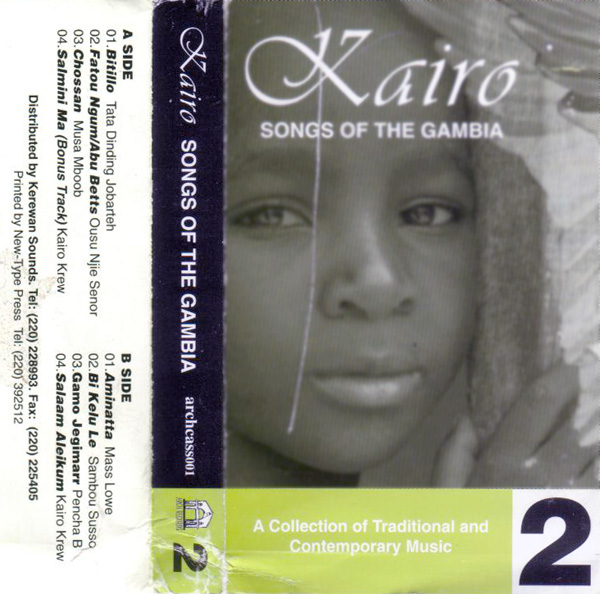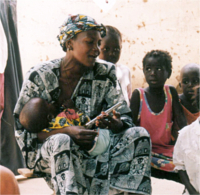Some Aspects of the Role and Status of the Women in the Music Life of Today’s Gambia1
(This article was originally published in 2002.)
The role and position of women in the music life of today’s Gambia is largely conditioned by the remnants of former social stratification. According to Gorer’s 1935 account, the jali / jali muso was the first person who touched a child at the moment of its introduction to the community and the last person to touch a dead body before it was laid in the ground (in Merriam 1964:139). On the other hand, some ethnic groups (for example, the Serer) believed that burying a griot in the ground would contaminate the soil or nearby springs, so they placed the body of a dead griot in the hollow trunk of the baobab tree (see Charry 1992:320). Such evident discrepancy between the role and status of musicians has continued to the present day and has been altered only to a small extent by the prestige of contemporary musicians, significantly intensified by their promotion in the mass media.


